2015-16 CCS LEADERSHIP COMMUNITY OF PRACTICE – WORKSHOP #2
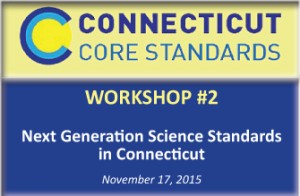 |
DATE: November 17, 2015
WEBINAR PRESENTER:
|
 |
AMAZON BOOKS
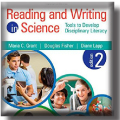 |
Reading and Writing in Science – by Grant, Fisher, Lapp ISBN-13: 978-1483345680 | ISBN-10: 1483345688 Students who are science literate can analyze, present, and defend data – both orally and in writing. This updated edition offers strategies for K-12 teachers to link the new science standards with literacy expectations, and specific ideas you can put to work right away. Features include:
|
COMMON CORE STATE STANDARDS INITIATIVE
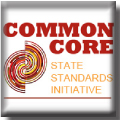 |
Common Core Standards
English Language Arts Standards and Science and Technology Standards at the secondary level can be found at this resource. Standards for K-5 reading in history/social studies, science, and technical subjects are integrated into the K-5 reading standards. |
NATIONAL SCIENCE TEACHERS ASSOCIATION
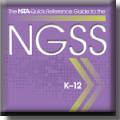 |
NSTA Quick-Reference Guides
The NSTA Quick Reference Guide to the NGSS series will assist educators in implementing the Next Generation Science Standards. These guides are designed to be used with the NGSS and include a variety of tools for science teachers, as well as administrators, curriculum developers and teacher educators. The NSTA Quick-Reference Guides to the NGSS are available in grade-specific versions as well as a comprehensive K-12 version. Elementary School Guide |
NEXT GENERATION SCIENCE EXEMPLAR
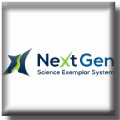 |
NGSX: Learning System for Science Educators
The Next Generation Science Exemplar (or NGSX) professional system is a learning environment designed to connect learners to a multi-faceted web-platform for K-12 educators and pre-service faculty. This site facilitates exploration of the major ideas found in the NRC Framework and the Next Generation Science Standards (NGSS), and development of practices to use in the classroom. NGSX also serves as a research site to collect data on 3-dimensional learning and the application of that learning in classrooms. Additionally, the site is designed to promote professional learning for those who want to become NGSX facilitators. |
STEM TEACHING TOOLS
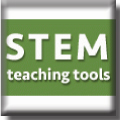 |
Article: “What school building administrators should know about the new vision for K-12 science education”
The new vision for K-12 science education described in the NRC Framework for K-12 Science Education and the Next Generation Science Standards (NGSS) hold significant promise to support greater educational equity and learning in STEM. But the new areas of emphasis for teaching and learning offer challenges for implementation. School building leaders play unique roles in resourcing and supporting teachers as they work to realize this new vision. This article offers them things to consider and actions to take to effectively support implementation. |
TEACHING CHANNEL
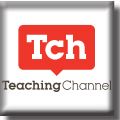 |
Video: “Facilitating Academic Discourse”
View this 9-minute video, “Facilitating Academic Discourse” to see how teacher, Steven English refines his eighth-grade students’ understanding of scientific concepts through small group and whole class discussions. Discussion questions include:
|
 |
Blog: “Tips for Engaging Your Students in Scientific Discourse”
The Science and Engineering Practices (SEPs), outlined in the Next Generation Science Standards (NGSS), provide a clear picture of what inquiry instruction should look like in the science classroom. Teaching students how to participate in productive science talk in the classroom is a key way to help them learn about and enact the 8 SEPs. This blog briefly explains the differences between traditional classroom talk and “productive talk” and includes tools and strategies for generating and facilitating the latter in your classroom. |
